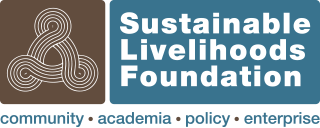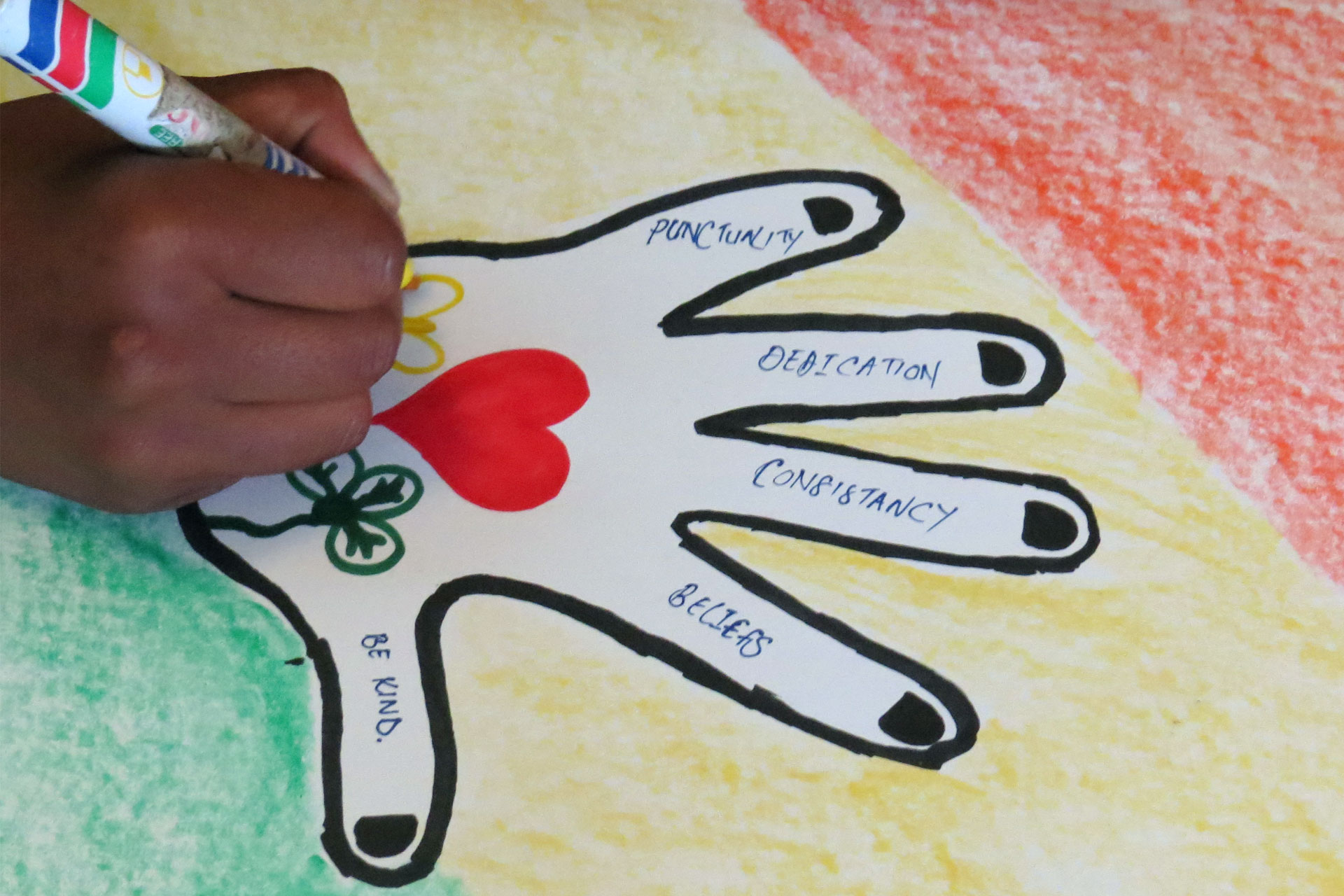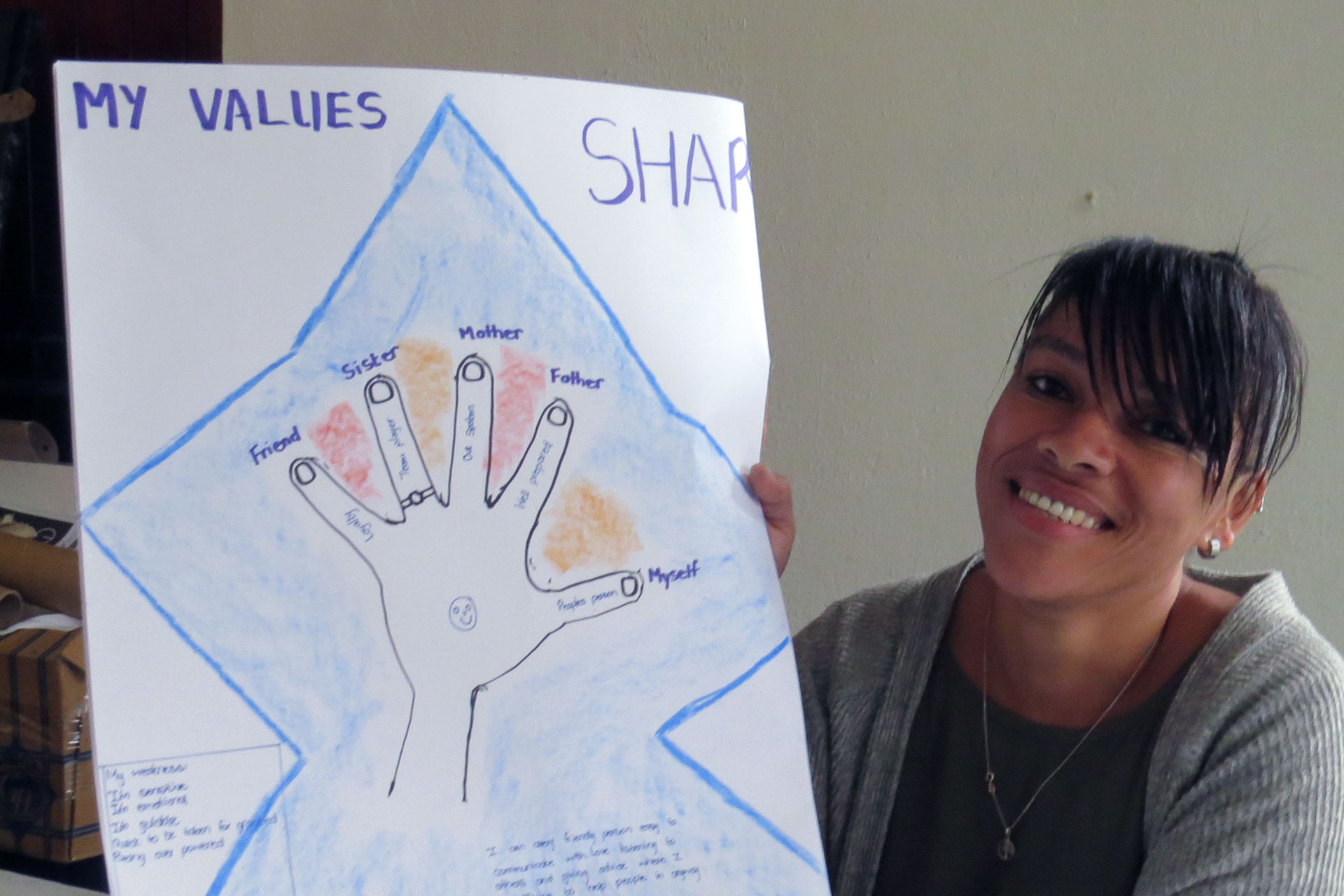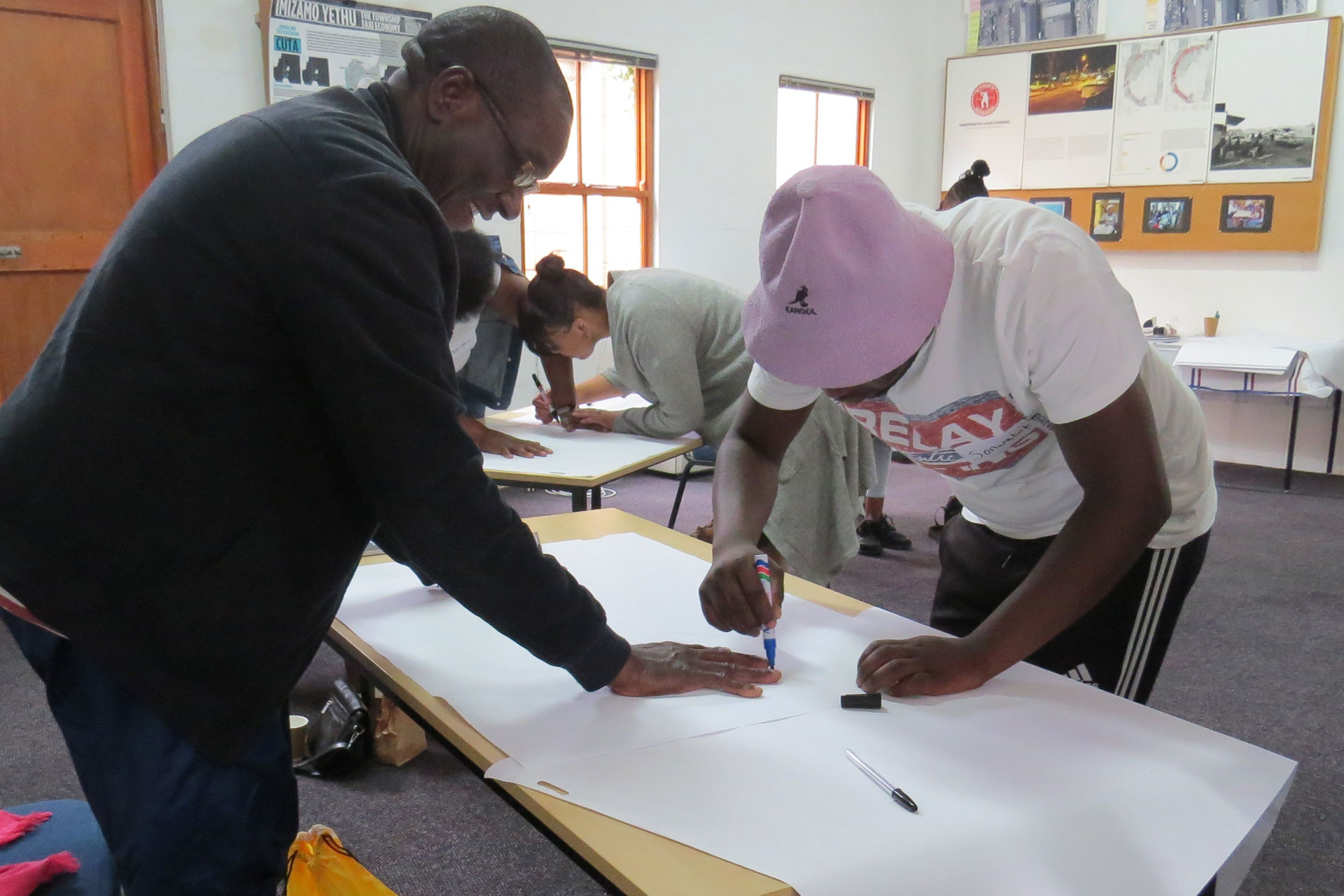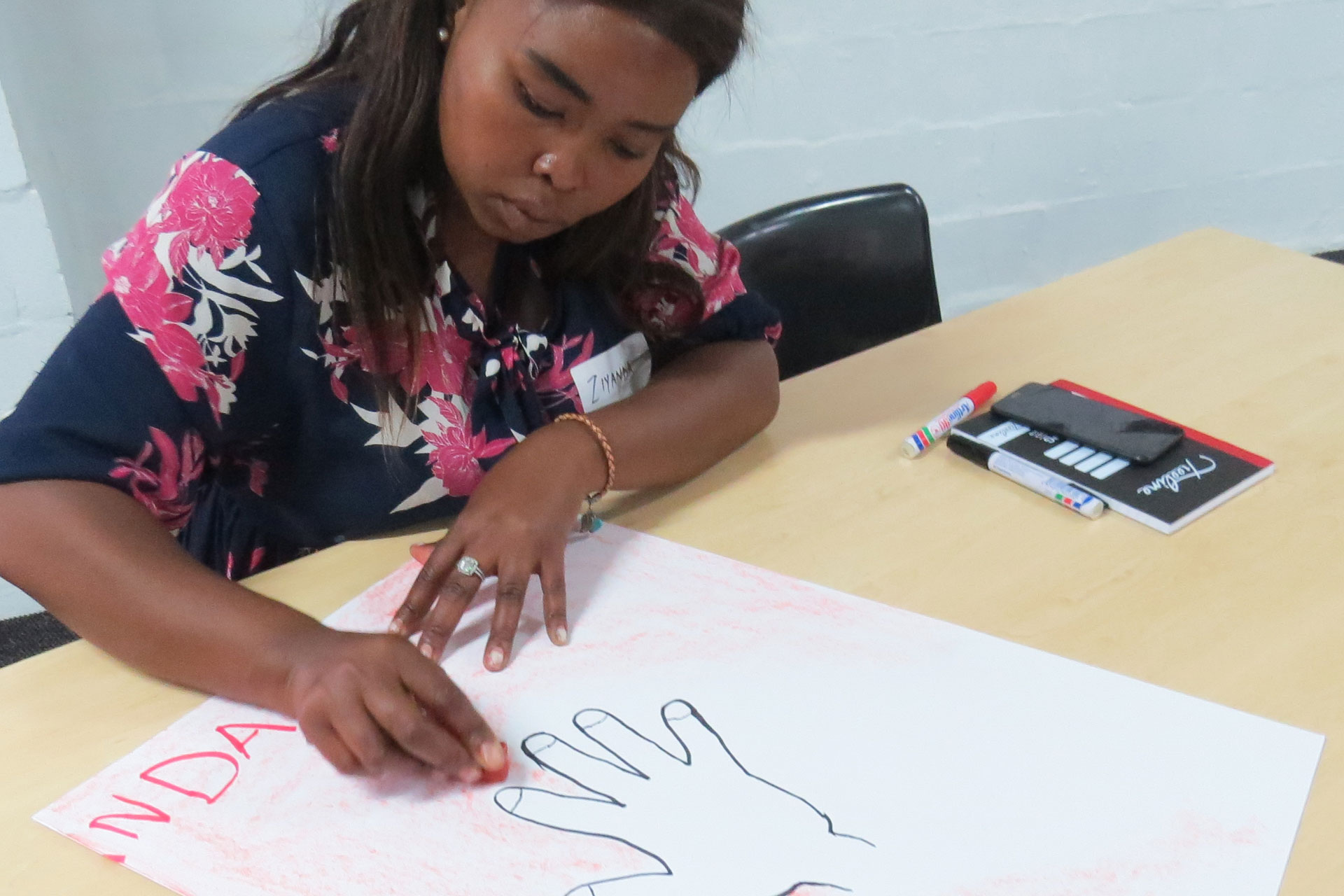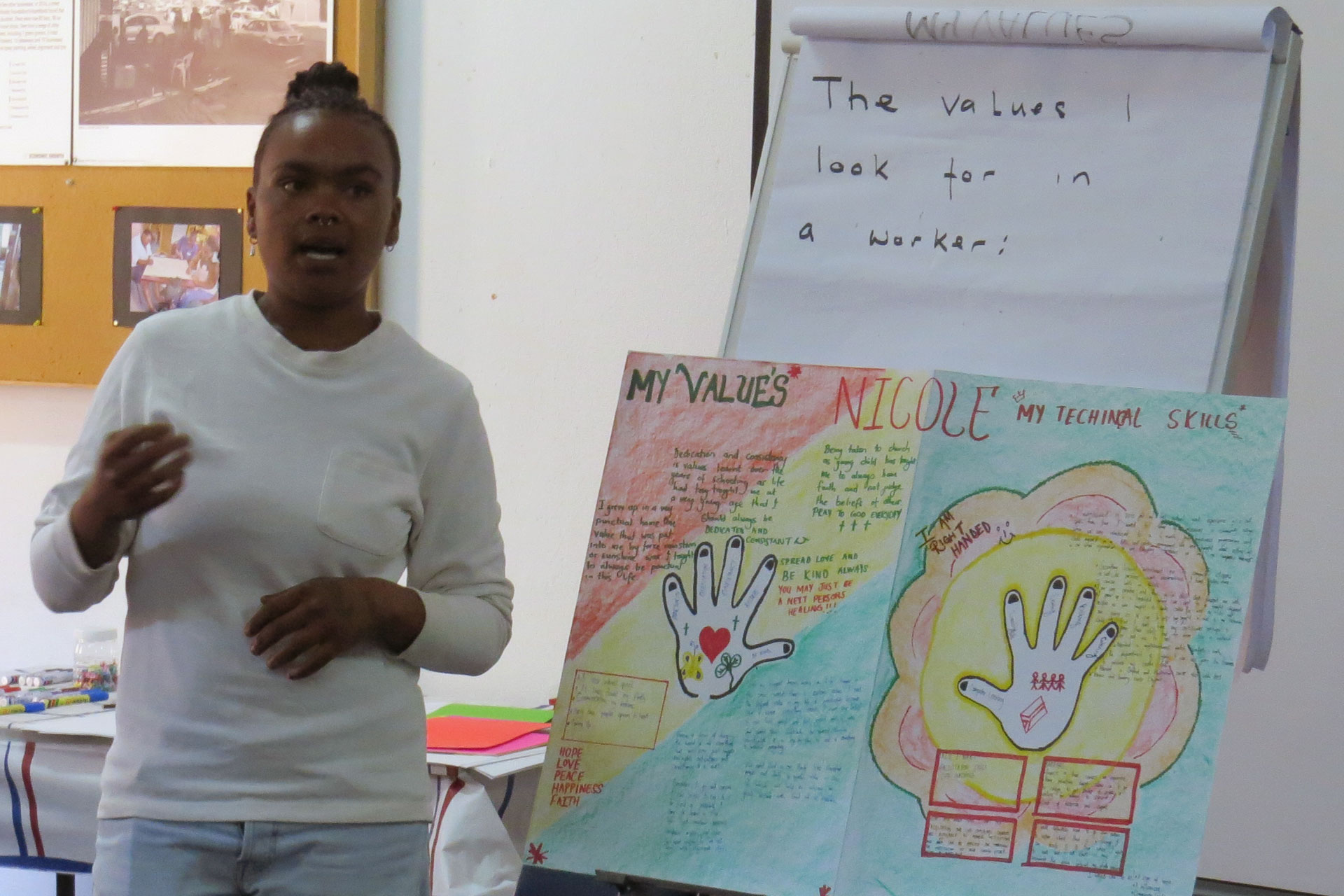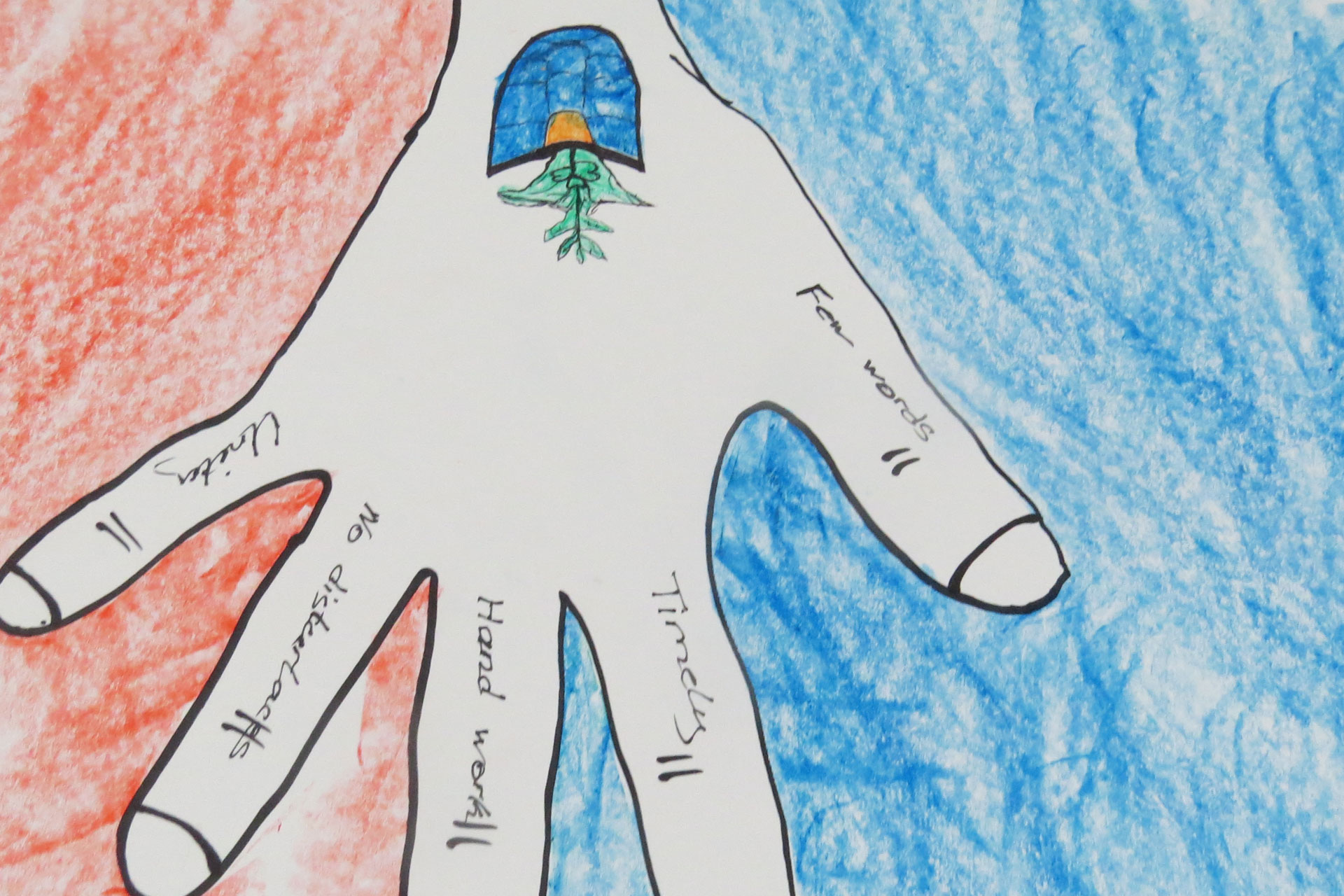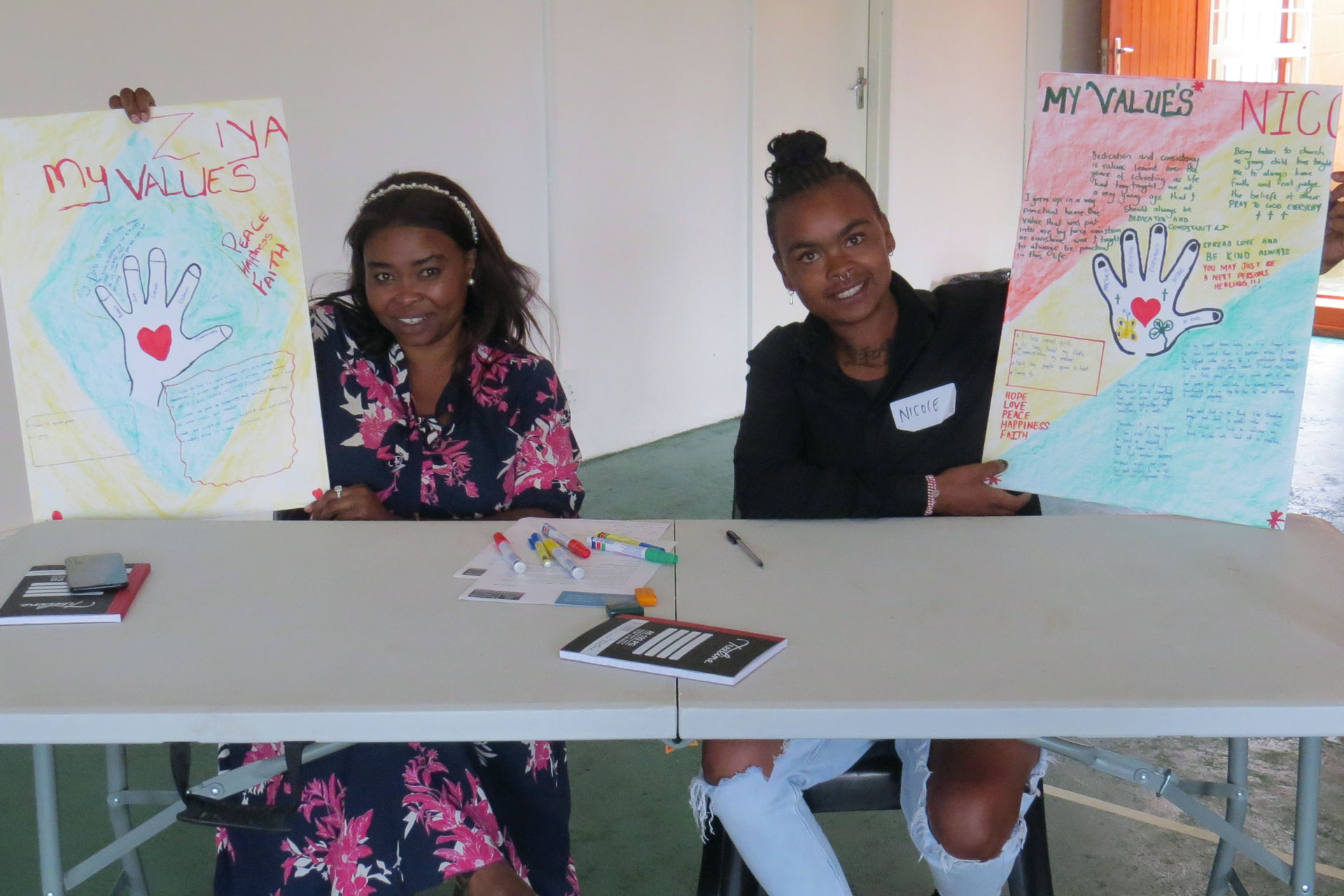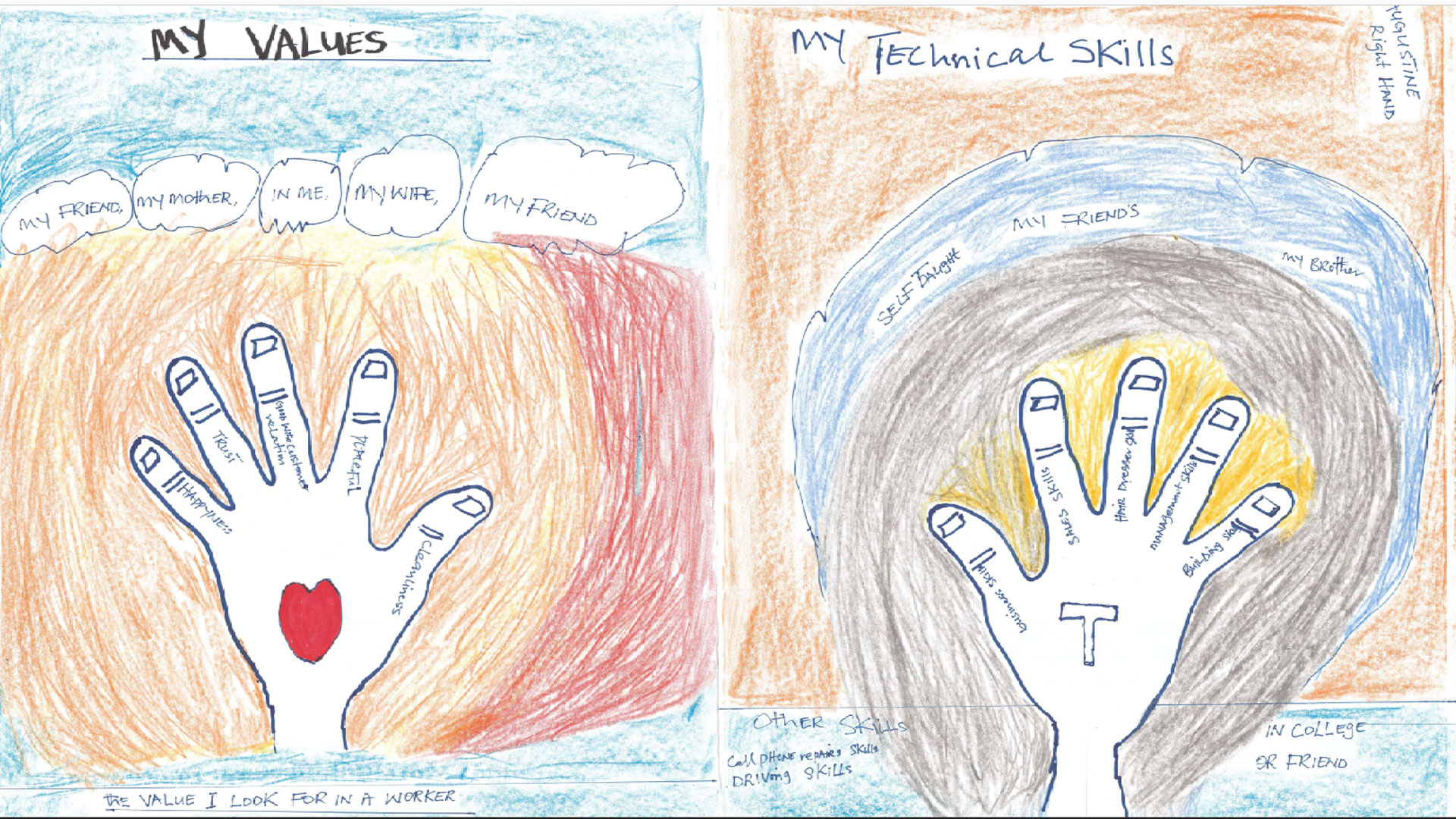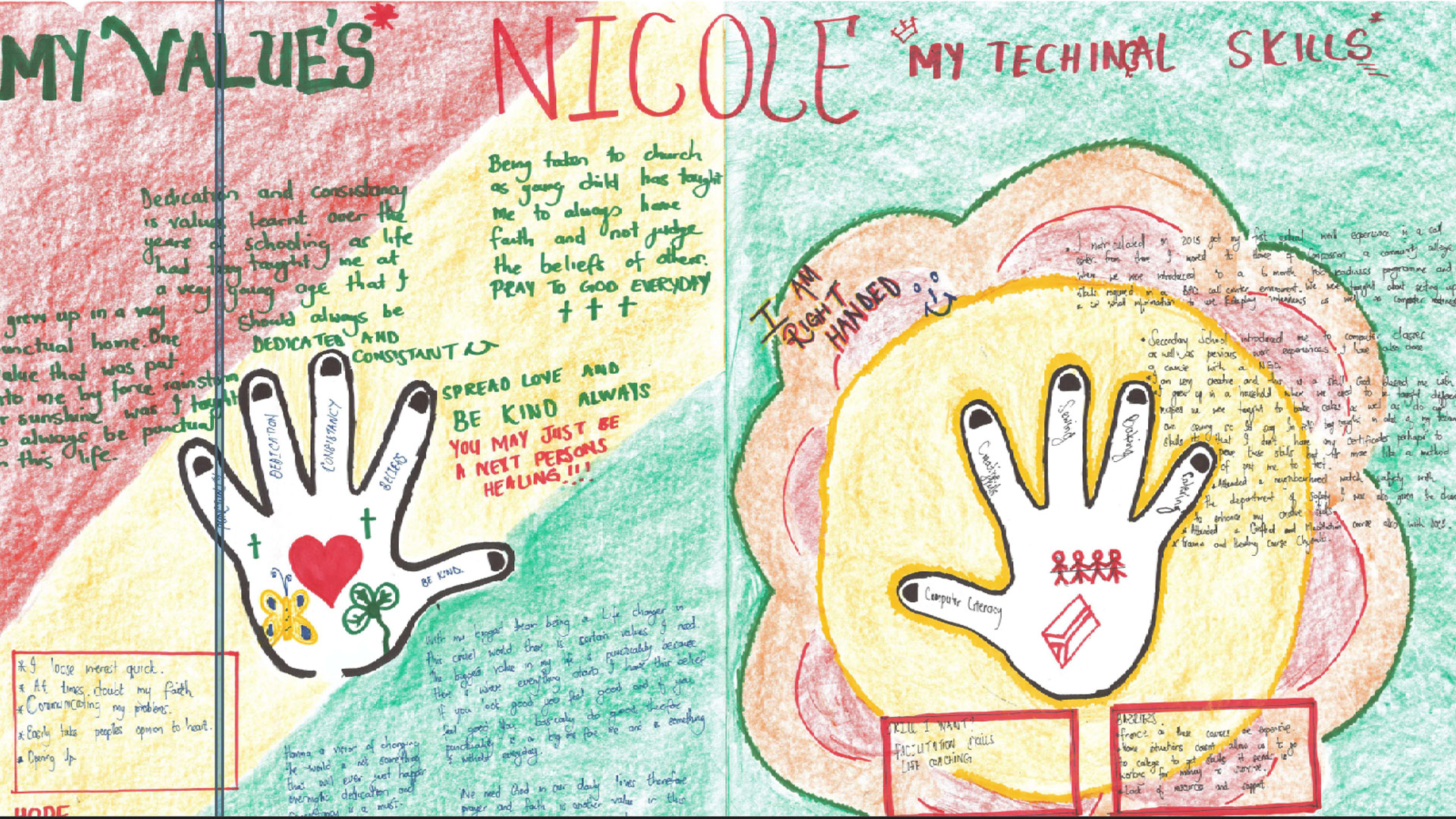Identifying Skills for Sustainable Livelihoods in Local Communities
This research project was undertaken to deepen understanding about the skills required for building sustainable livelihoods in marginalised communities. Field research was undertaken in Delft, Cape Town, and Pinetown South townships in eThekwini. An extensive literature review guided the formulation of research questions and methods. The research process entailed household interviews, a survey of small business owners, and participatory visual research with a cohort of community members and business owners from Delft. A modification of the hand mapping method was used to facilitate participatory engagement. The research findings will be used to inform strategic planning by the Department of Higher Education and Training.
Microenterprise business owners face many challenges while operating in the township context. Our findings reveal that these actors are resilient and adaptable, and that much can be learnt from people running micro-enterprise owners in terms of their understanding of localised demand and spatial logics. Importantly, our findings indicate that the contexts that these business owners operate in influence the requirements they set for employing individuals, rather than particular hard skills. The research found that while many unemployed people in Delft and Pinetown have employable skills and are striving to expand these, microenterprise business owners place a premium on socio-cultural values, or soft skills such as honesty, reliability in a work context and work ethic. These values, rather than vocational skills, are principally taught in social institutions, such as the family or home.
Location:Delft, Cape Town and Pinetown, eThekwniniDuration:2020-Partners:Development Policy Research Unity, University of Cape Town
